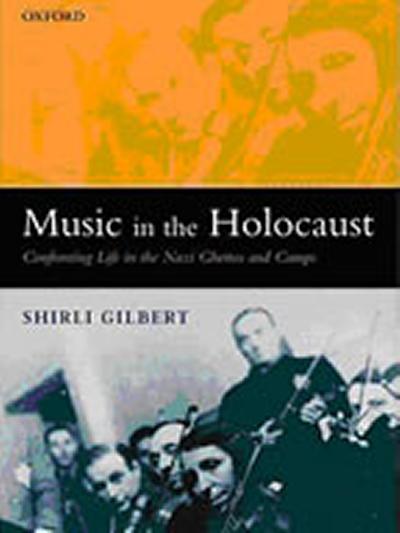Dr Gilbert comments: “Jews being held in concentration camps were unable to document what was happening to them by conventional means. Writing down or photographing this would have been impossible, so they turned to a long cultural tradition of telling their stories through songs and music.
“Music played an important role in daily life for prisoners. Even in the death camps, official orchestras were established and there were regular performances. Often this music-making was an activity commanded by guards, or was used by the SS to break prisoners’ wills. However, away from the eye of the SS officers, Jews secretly created their own music as a means to cope, survive and document.
“By studying this music we have been able to shine a light on the internal world of prisoner communities in the ghettos and camps set up by the Nazis. It shows the diverse ways in which prisoners understood, interpreted and responded to what was happening to them.”
After the end of the Second World War, audio recordings and notations were made in order to keep a documentary record of the music. Dr Gilbert has helped to bring together much of this evidence on a website Music and the Holocaust, which explores its cultural significance and preserves it for the future.
The website lists individual camps and ghettos and gives an insight into the kinds of musical activities conducted at each one. It brings together audio clips of songs from a variety of different sources, including the archives of the US Holocaust Memorial Museum. The site is used as a resource by schools and colleges – giving young people the chance to learn about music, the Holocaust and the plight of Jewish people during the war.
Dr Gilbert is the Deputy Director of the Parkes Institute for the Study of Jewish/non-Jewish Relations based in Humanities at the University of Southampton. Along with two other research areas from the Institute, her website formed a submission to the most recent Research Excellence Framework (REF 2014), which assesses the quality of research in UK higher education institutions. She recently spoke at a United Nations forum on ‘Learning about the Holocaust through the Arts’ at the UN headquarters in New York.
The research was entered along with that of the Parkes Institute Director, Professor Tony Kushner, who focusses on the experiences of young Holocaust survivors brought to Britain after the war and Dr Mark Levene, whose research places the Holocaust in a broader context – relating it to the destruction, or near-destruction, of innumerable other minority peoples.
Together, the three projects encompass diverse responses to the history of genocide – united by their desire to demystify events and to show that genocide, including the Holocaust, happened in the everyday world and secured a range of responses, from empathy with the victims through to collaboration in mass murder.
